

Publications Regarding Government
Articles

Special Review of Public Opinion Ahead of 2026 Elections (IDI's Israeli Democracy Index)
Following the release of the IDI's Israeli Democracy Index earlier this week, we're pleased to present the findings of a special chapter on Israeli public opinion ahead of 2026 national elections in Israel.

State Commissions of Inquiry and the Differences from the Government's Politically Appointed Commission
Written By: Dr. Dana Blander, Adv. Mirit Lavi
The proposal to advance a politically appointed commission of inquiry into the events of October 7 is a significant departure from the accepted model of an independent state commission of inquiry. This explainer compares the two models and lays out the key details of each one.

Israel's government-appointed October 7 probe is no substitute for independent inquiry - opinion
Written By: Dr. Dana Blander
The Israeli government’s decision to establish its own committee to investigate the failures on October 7 is not enough.

Evaluating the ICJ’s UNRWA Advisory Opinion
Written By: Prof. Yuval Shany, Prof. Amichai Cohen
The opinion is correct that Israel violated international law by cutting ties with UNRWA, but some broader observations are questionable.

What's A Commission of Inquiry? Explainer
Written By: Dr. Dana Blander
The Israeli government recently announced its intention to establish its own commission of inquiry into the events of October 7, 2023, rather than forming a State Commission of Inquiry—the most authoritative, independent, and legally empowered investigative mechanism under Israeli law. As Dr. Dana Blander, a research fellow at the Israel Democracy Institute, explains, Israel’s legal framework provides for several types of investigative commissions, each differing in its degree of independence, statutory authority, and public legitimacy. Notably, the government’s recent decision does not establish a State Commission of Inquiry—the appropriate and legally grounded institution for investigating the events of October 7—nor does it create a governmental commission of inquiry. Instead, it proposes a vague, ad hoc body seemingly tailored to serve specific political interests rather than the public need for a credible and impartial investigation. This explainer outlines the existing commissions - as more information comes to light about the government's planned commission, additional analysis will be provided.

A Ministry With No Minister
Written By: Dr. Moran Kandelshtein-Haina
Israel currently has six government ministries with no ministers leading them. This is not only a breach of the fundamental duty of government, it also means decisions and regulations requiring ministerial approval cannot move forward, and key public services cannot be delivered to the citizens.

A Review of the Moves Designed to Weaken Israeli Democracy: Working Document
Written By: Adv. Anat Thon Ashkenazy, Adv. Daphne Benvenisty
Knesset Summer Session: April 2025 to July 24, 2025

A Note to Members of Knesset: Immunity Does Not Apply to Police Investigations
Written By: Prof. Suzie Navot, Dr. Moran Kandelshtein-Haina
Though Members of Knesset are granted immunity from prosecution under the law, legal precedent makes clear that this immunity does not apply to the stage of criminal investigations.

The Appointment of the Next Shin Bet Chief and The Advisory Committee on Senior Civil Service Appointments
Written By: Dr. Assaf Shapira
When and why was the Advisory Committee on Senior Civil Service Appointments established, what are its powers, and which appointments is it supposed to review? Everything you need to know about the "Grunis Committee" that is examining the candidacy of Major General Zini for head of the Shin Bet.

One Minister Wearing Five Hats
Written By: Prof. Suzie Navot, Dr. Moran Kandelshtein-Haina
With Justice Minister Yariv Levin's recent appointment as Acting Minister of Jerusalem and Jewish Heritage, he now holds five ministerial portfolios. This situation, with Levin and other ministers, is harmful to public interest and raises important legal and procedural questions.

Back Into the Abyss: Israel’s Government Fires Attorney General, Supreme Court Blocks the Move
Written By: Prof. Yuval Shany, Prof. Amichai Cohen
The firing of the AG constitutes another escalation in the current government’s approach to the domestic rule of law institutions.

The Hidden Lesson of Israel's Iran Victory
Written By: Yohanan Plesner
Israel’s victory over Iran was not just a triumph of military strategy—it was a testament to democracy and moral clarity. In a region plagued by autocracy, it is Israel’s enduring commitment to freedom, pluralism, and the rule of law that gives it the resilience and strength to prevail.

Dismissing the Attorney General
Written By: Dr. Guy Lurie, Dr. Amir Fuchs
This paper describes the procedure that has been laid out for dismissing the attorney general, its recent revision, and explains why the decision by the Netanyahu government to fire the attorney general at the current time is legally invalid.
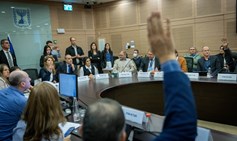
What is the “MK Expulsion Law?"
Written By: Dr. Amir Fuchs, Avital Friedman
The Knesset passed Amendment 44 in 2016 to regulate the possibility of impeaching MK's. An MK can be expelled if the Knesset finds that his or her actions constituted incitement to racism or support of an armed struggle against Israel.

Israelis Are United – It’s Time for Our Leadership to Follow Suit
Written By: Yohanan Plesner
Polls reveal that despite apparent polarization, Israelis are remarkably united on almost every issue of importance, prioritizing hostage release, ending Haredi draft exemptions, and anchoring a constitutional framework—leaving only their leaders out of step with the national consensus.
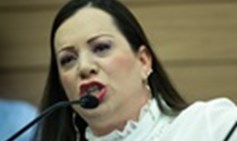
Putting Knesset Members Above the Law
Written By: Dr. Amir Fuchs
The amendment to the Immunity Law proposed by MK Tally Gotliv would allow MKs to grant themselves immunity from criminal and civil prosecution, undermining equality before the law and creating inherent conflicts of interest that disproportionately protect coalition members from accountability.

Four Comments on the Decision to Dismiss the Head of the Shin Bet
Written By: Prof. Suzie Navot
On March 16, 2025, Prime Minister Netanyahu announced his intention to bring the dismissal of Ronen Bar, the head of the Israeli Security Agency (Shin Bet), Israel's internal security service, to a vote of the full cabinet. Though not a perfect comparison, the Shin Bet is often seen as comparable to the FBI in the US.

Public Opinion Survey on Representation of Women in Influential Roles Part I
Written By: Adv. Anat Thon Ashkenazy
A survey on women's representation conducted among men and women in Israel. Findings show that most (65%) consider equal representation when deciding on which party to vote for; 71% think the number of women in the Knesset, the government and in senior positions should be increased.

Israel’s Renewed Judicial Overhaul
Written By: Prof. Yuval Shany, Prof. Amichai Cohen
The battle over Israel’s legal system has resumed, threatening judicial independence.

Women’s Representation in Israeli Politics: Analysis for 2025
Written By: Prof. Ofer Kenig
An analysis and international comparison of women's representation in the Israeli political arena.

Does the Minister of Justice Have Immunity?
Written By: Prof. Suzie Navot, Dr. Moran Kandelshtein-Haina
In response to a petition filed against him regarding the intentional delay in appointing a president of the Supreme Court, Minister Levin claimed that it is impossible to sanction him because he enjoys “substantive immunity.” A closer examination of the law reveals that this is not the case.

“If I am not the one deciding – then we will change the rules”
Written By: Prof. Suzie Navot
In September, the Supreme Court ordered the Minister to fulfill his duty to convene the Committee because the system cannot be paralyzed. Since then, the Minister has convened the committee, but refused to appoint the Supreme Court President. Now, the Court has ordered him to do so.

New Bill Proposed Expands the Criteria for Disqualification of Electoral Lists
Written By: Dr. Amir Fuchs
A new bill proposes to amend Basic Law: The Knesset, by expanding the criteria that would disqualify candidates and lists from participating in elections based on minimal and even past expressions, interpreted as sympathy or support for armed struggle of an enemy state or terrorist organization.

Emergency support for Israel must also go toward strengthening its democratic institutions
Written By: Mr. Amir Elstein
Physical reconstruction and addressing emergency needs are helpful, but to really make a difference post-Oct. 7 donors should focus on improving Israeli governance and civil society

High Levels of Trust in IDF More than One Year Into the War, Except Among Ultra-Orthodox and Arab Israelis
Written By: Viterbi Family Center for Public Opinion and Policy Research, Center for Security and Democracy
A special survey assessing public opinion on matters of national security, presented at IDI's annual conference on Security and Democracy. The survey found support for a mandatory draft, and significant economic penalties for those who do not serve.

Minister of Defense Gallant is Fired: A Review of the Dismissal of Israeli Cabinet Ministers
Written By: Prof. Ofer Kenig
At first glance, the dismissal of Minister of Defense Yoav Gallant is not unprecedented – prime ministers hold authority to fire ministers, and Prime Minister Netanyahu has done so in the past. However, the circumstances surrounding the current dismissal are especially intense.

Why Does Everyone Except the Prime Minister Want a State Commission of Inquiry?
Written By: Dr. Dana Blander
Establishing a State Commission of Inquiry is the civic, moral, and public duty at the highest order. And it must be done now.

The Security Cabinet Should Play a Greater Role in Determining Hostage Negotiations
Written By: Prof. Amichai Cohen, Adv. Mirit Lavi
The Prime Minister’s decision to retain the power to determine the parameters and scope of the hostage deal as a “policy issue” disregards the implications such a deal has on security issues. Israeli history underscores the importance of convening the security cabinet and upholding the appropriate democratic channels in times of war.

The Knesset in Numbers
Written By: Dr. Assaf Shapira, Avital Friedman, Dr. Chen Friedberg
The 25th Knesset has recently completed its summer session, which began on May 19, 2024 and concluded on Sunday July 28, 2024. This article reviews and analyzes various aspects of the Knesset’s work during this period, comparing them to the previous two full sessions of the 25th Knesset.

A Two-Tiered Process of Accountability for October 7
Written By: Dr. Dana Blander
A state commission of inquiry is a vital step, but it is up to the public to ensure Israel's leaders are truly held accountable.

The Judicial Overhaul and Anti-Democratic Initiatives - Part II
Written By: Adv. Anat Thon Ashkenazy, Adv. Daphne Benvenisty
IDI experts outline the initiatives and measures undertaken by the government that, taken together, constitute a concentrated effort undermine Israel's democratic institutions. At the core of these efforts is a dramatic attempt to weaken the status of the Attorney General; increased politicization of the police; continued undermining of the independence of the judiciary and more.

The New Rabbis Law Includes a Number of Inherent Flaws
Written By: Dr. Ariel Finkelstein
Dr. Ariel Finkelstein warns that the proposed new "Rabbis Law" would weaken the standing of local communities, could lead to cronyism, reduce women's representation and more.

“Unity” as a Means to Weaken the Judicial System
Written By: Dr. Guy Lurie
While the Israeli public has been focusing on the war and on the hostages in Gaza, the government—led by the minister of justice—has been preparing an assault on the independence of the judicial system.

Netanyahu Government Gets Low Grades Across Various Wartime Issues
Written By: Prof. Tamar Hermann, Dr. Lior Yohanani, Yaron Kaplan
Across the issues of US-relations, the war in Gaza, evacuees from the south and the north, fighting Hezbollah, and public diplomacy efforts abroad—both Jewish and Arab Israelis give the government low grades.

The Missing Side of the Triangle: The Danger Religious Zionism Faces
Written By: Prof. Benjamin Porat
Religious Zionism (the sector, not the political party that appropriated the name) is one of the most influential population groups in Israel. In the following essay, I wish to draw attention to a worrying process afflicting religious Zionism, the roots of which can be traced back to its early days and has dramatically worsened in recent years.

The Situation for Women in Israel: More Violence, Less Representation and Growing Exclusion from Public Service
Written By: Adv. Anat Thon Ashkenazy
Women in senior government positions are leaving their roles, the number of victims of domestic violence is rising, and the prevailing spirit from the government does not bode well. Now more than ever, there must be a call for immediate and fundamental change in placing women's rights at the top of the national agenda.

The Effectiveness of the Public Services in Israel: An International Comparison
Written By: Adv. Rita Golstein-Galperin, Ofir Mohaban, Roe Kenneth Portal
The tragedy of October 7, and the lack of a public sector response over the course of the ongoing crisis, shed light on the grim situation. This review presents figures and trends relating to the performance of the public sector and its ability to provide services and solutions in real time.
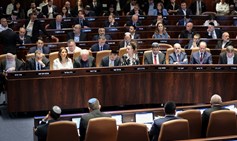
The Judicial Overhaul and Anti-Democratic Initiatives
Written By: Adv. Anat Thon Ashkenazy, Adv. Daphne Benvenisty
Judicial overhaul initiatives, along with other anti-democratic measures, have continued to be promoted by the government and the coalition in the Knesset. This document outlines the various actions taken in government that weaken the Israeli judiciary and democracy at large.
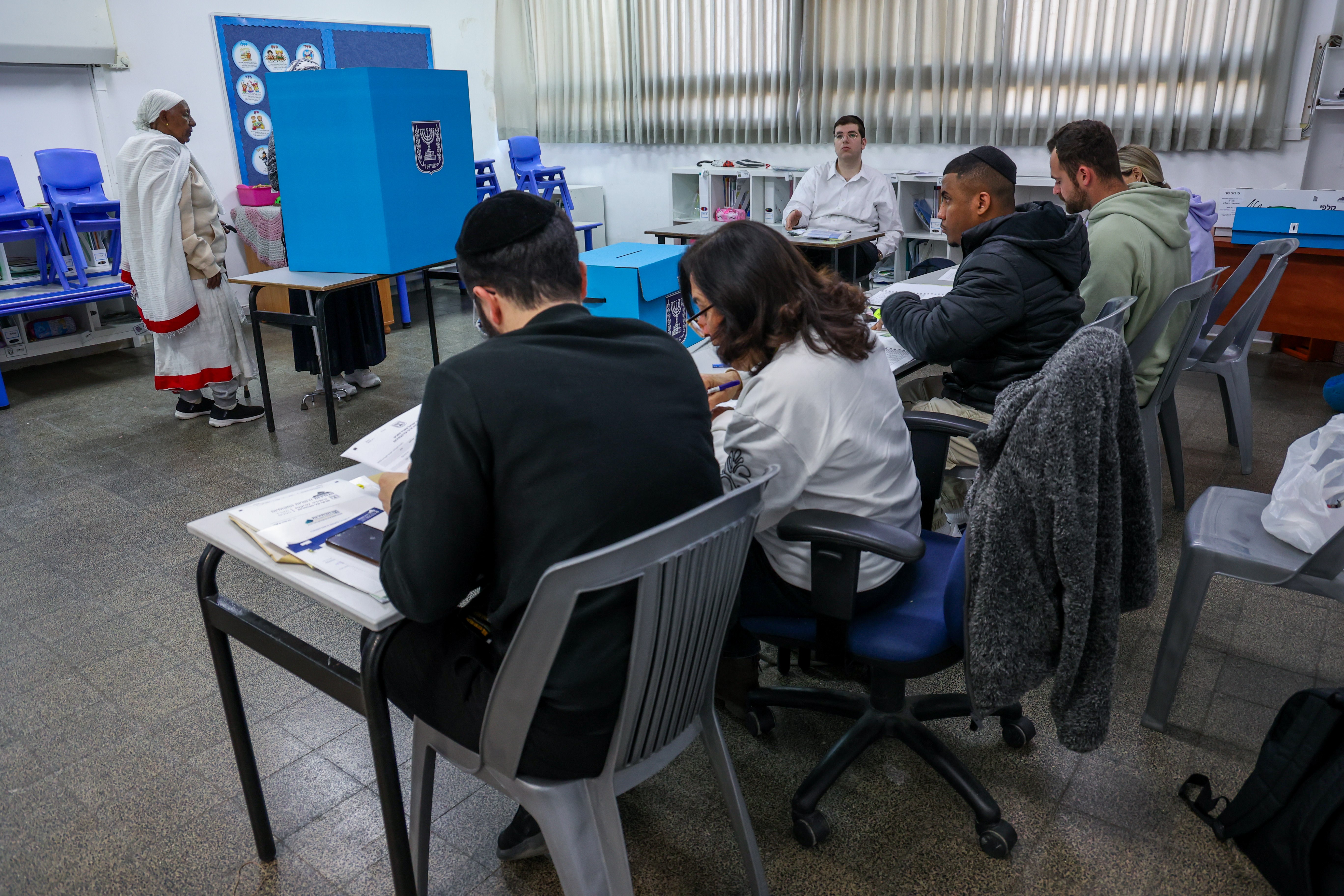
Analysis of the 2024 Local Elections
Written By: Dr. Ariel Finkelstein
On February 27, 2024, elections were held in 242 localities throughout Israel. The following analysis reviews the results of the elections from a number of angles.
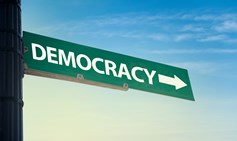
Continue to Stand Guard: Israel's Decline in Global Democracy Metrics is Troubling, but Not Catastrophic
Written By: Dr. Assaf Shapira
V-Dem's latest report downgraded Israel's status from a "liberal democracy" to an "electoral democracy." The change in Israel's category is concerning, but on its own, it does not necessarily indicate a clear democratic decline.
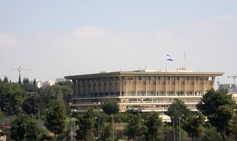
The Israeli Democracy Index 2023
The IDF and local authorities received the highest trust ratings from the Jewish public, while the political institutions were at the bottom with the lowest level. The post October 7th survey also saw a substantial increase in trust in the Israeli police.

Women’s Representation in Israeli Politics: Analysis for 2024
Written By: Prof. Ofer Kenig
Between 1996 and 2015, there was a real improvement in women's representation in the Knesset. Since 2015, however, it seems this upward trend has stalled and female legislative representation is faltering, especially compared to other democracies.
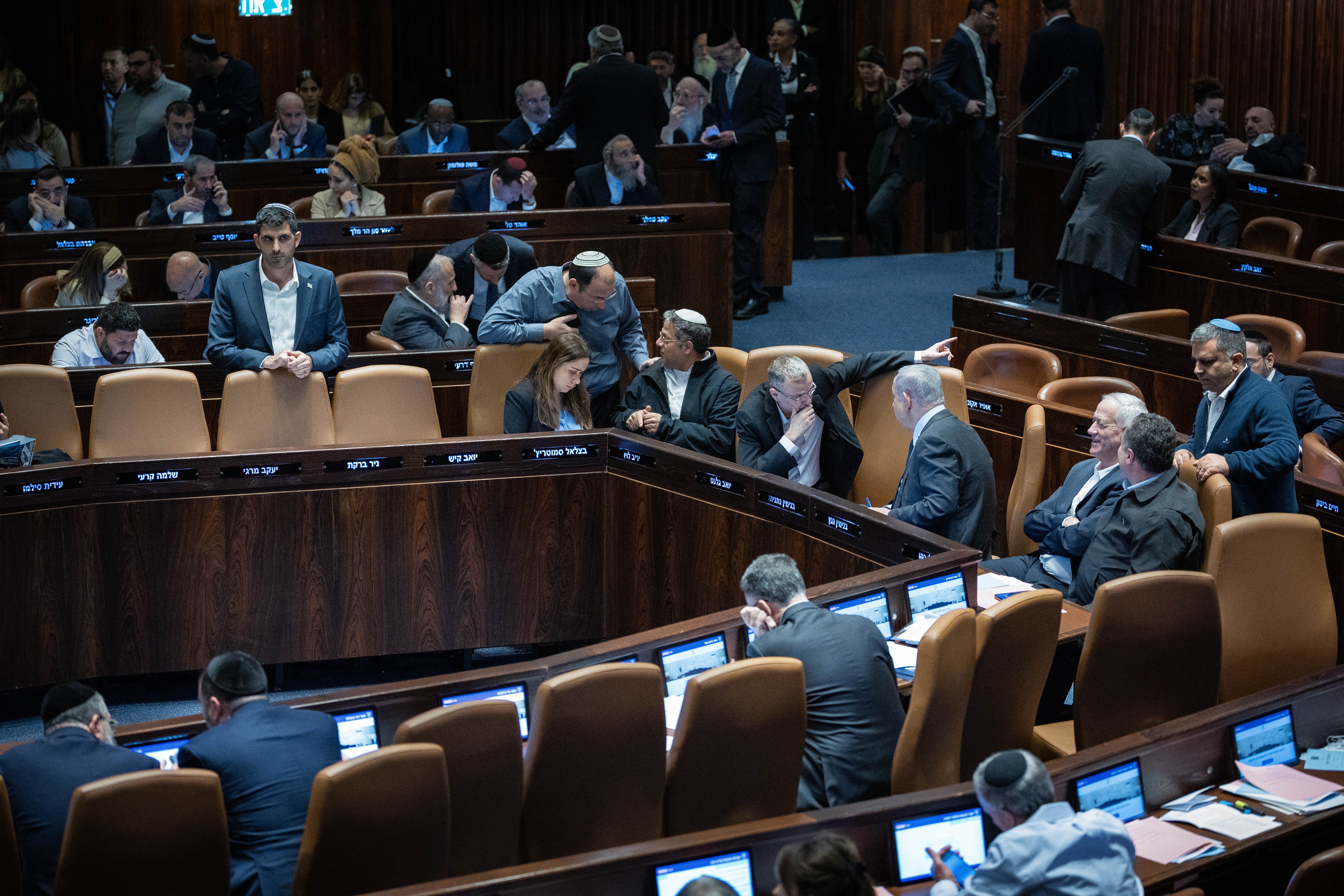
Coalition and Political Funds: Main Conclusions
Written By: Prof. Karnit Flug, Tzachi David
Coalition funds have been part of the budget-making progress for years. This study examines the trends in the use of these funds under the last three governments. One can see that the volume of coalition funds has grown up to fourfold within two Governments and that their breakdown has been less professional and more directed to interest groups.

The Worthy Clause in the Nation-State Law
Written By: Dr. Amir Fuchs
The Nation-State Law includes a clause that declares the state's obligation to care for all Jewish people and all Israeli citizens whenever they are in jeopardy due to either their Jewish identity or Israeli citizenship. This does not impose a legal obligation, but it does reflect this special value which must not be lost during this war.
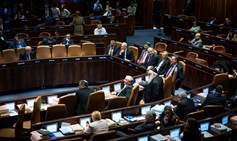
Four Notes on the State Budget
Written By: Prof. Yuval Feldman
Four behavioral insights on the recent State budget and how it informs on Israeli society and politics.
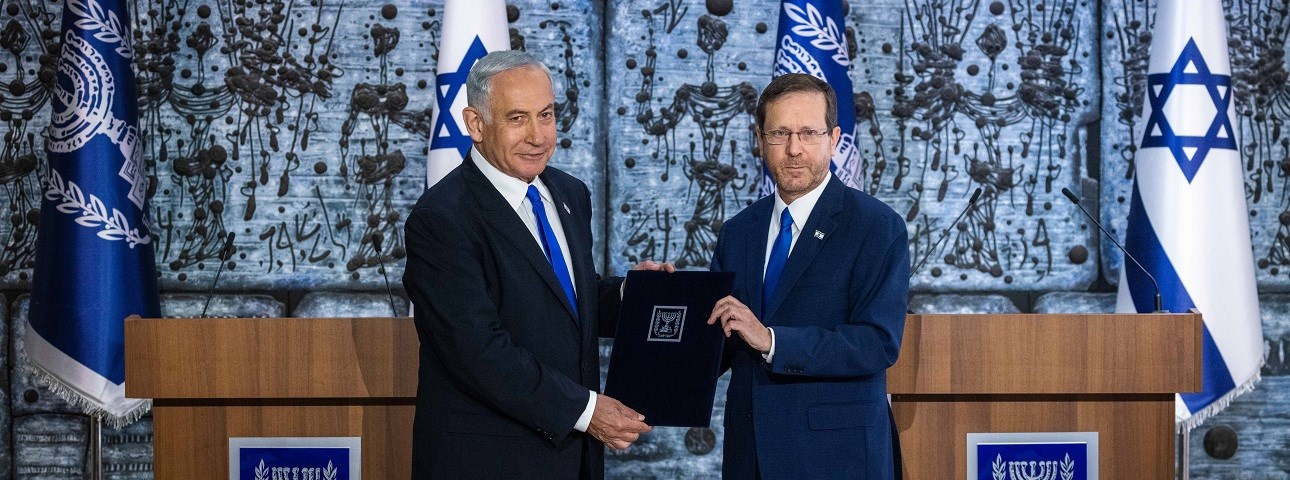
Farewell Elections, Hello 37th Government
Written By: Prof. Ofer Kenig
The elections for the 25th Knesset assembly produced a clear result. Israel’s citizens have had their say, and the political system is now entering the next stage of the cycle: forming a new government. Over the coming days, President Herzog will consult with the representatives of the factions elected to the Knesset, and will decide whom to entrust with the task of forming a government. This will begin the process that will culminate in the swearing-in of Israel’s 37th government. What are the rules that govern this process, and what can we learn from past experience in Israel and in other countries?

Minority Governments: Why Smaller Is Not Necessarily Worse
Written By: Dr. Assaf Shapira
In the wake of the latest political crisis - can a minority government prevent yet another election?

Political Reform: The Imperative of the Hour
Written By: Dr. Assaf Shapira
Critical reforms are necessary to ensure the quality and future of Israeli democracy
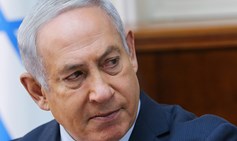
A Cooling-Off Period for a Prime Minister and Breakaway Knesset Factions: Qs and As
Written By: Dr. Amir Fuchs, Dr. Assaf Shapira
There are no provisions for limiting the tenure of prime ministers in parliamentary democracies such as Israel, and any new rules must be objective and not made to satisfy political needs
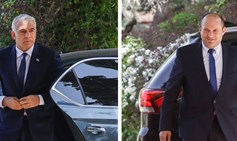
Prime Minister from a Small Party? Impossible? Well… There are Examples
Written By: Prof. Ofer Kenig
A government headed by a prime minister who leads small faction in the Knesset - how exceptional is such a scenario and to what extent is it prevalent in parliamentary systems? Prof. Ofer Kenig analyzes examples of parliamentary democracies where the prime minister hails from a small party.
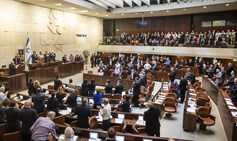
What’s Wrong with Israel’s Political System?
Written By: Prof. Yuval Shany
Four elections in two years failed to produce decisive results - what's wrong with Israel's political system and is there is any way out of its current political stalemate?
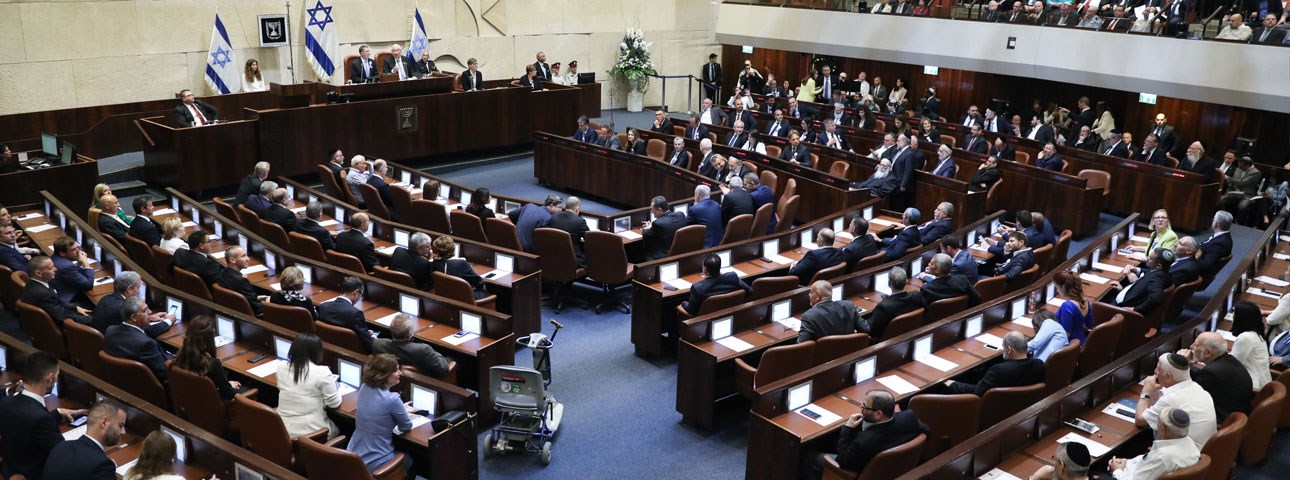
Disbanding the Knesset for Lack of an Approved Budget Makes No Sense
Written By: Dr. Assaf Shapira
This law, unique to Israel, was meant as an incentive to avoid budgetary deadlock. Today, it sows instability.

Policy Recommendations for the Minister of Religious Services
Written By: Dr. Shuki Friedman
After three contentious election campaigns Israel's new government has been sworn in. IDI's experts weigh-in with their recommendations on the most important issues on the agenda. Dr. Shuki Friedman on the challenges facing the 35th government in matters of religion and state.

Policy Recommendations for the Minister of Culture and Sports
Written By: Adv. Edna Harel Fisher
After three contentious election campaigns Israel's new government has been sworn in. IDI's experts weigh-in with their recommendations on the most important issues on the agenda. Edna Harel-Fisher presents recommendations on cultural policy.
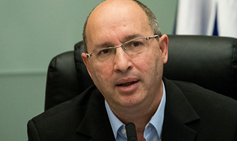
Recommendations for the Incoming Justice Minister
Written By: Dr. Nadiv Mordechay
After three contentious election campaigns Israel's new government has been sworn in. IDI's experts weigh-in with their recommendations on the most important issues on the agenda.
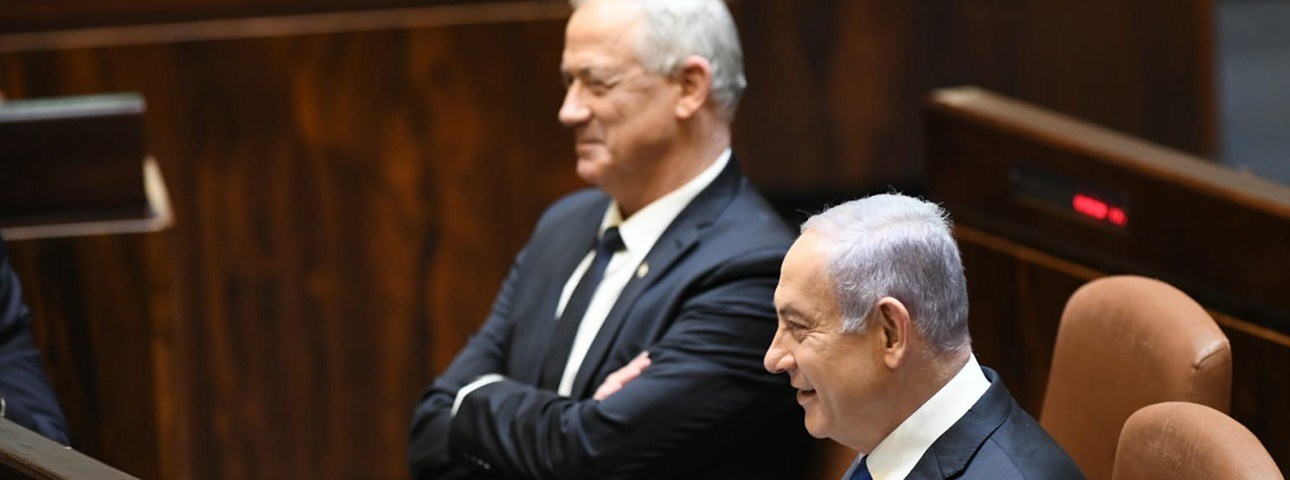
Israel’s 35th Government: A Portrait
Written By: Prof. Ofer Kenig
After 18 months of political deadlock, Israel’s 35th government was sworn in - and in many ways it's quite unique.
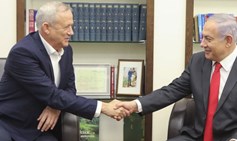
No Justification Whatsoever
Written By: Prof. Ofer Kenig
The establishment of the Netanyahu-Gantz government required many compromises.That being said, there is absolutely no way to justify the extravagant size of the new government

The Rotation Agreement — One State, Two Governments
Written By: Dr. Assaf Shapira
The rotation mechanism agreed upon creates a governmental structure, unprecedented neither in Israel or anywhere else

IDI Publishes Its Annual Israeli Democracy Index 2025
IDI's 2025 Israeli Democracy Index: More positive assessments of the country’s overall situation, but there are low grades for Israeli democracy; public trust in the majority of institutions remains low; and the friction between Right and Left is viewed as the most acute social tension in Israel. Despite this, most Israelis prefer to remain in Israel rather than moving abroad.

An Israeli Republic, If We Can Keep It
Written By: Yohanan Plesner
Israel must not squander its opportunity for much needed renewal, but first the people need to weigh in and choose a consensual mechanism of constitutional reform





